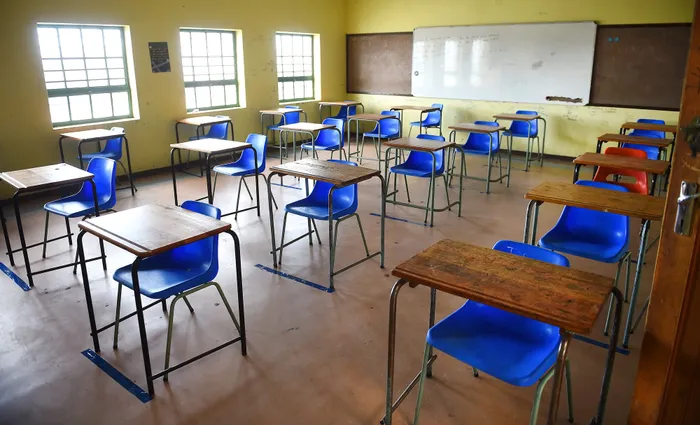When will learners get their own AI at school?
WES.INTEL

Some schools still lack computer labs. In general, the education sector has been playing the catch-up game at school level, the writer says.
Image: Phando Jikelo Independent Newspapers
In the past, there has been a failure to prepare young people for the technology-driven world.
Some schools still lack computer labs. In general, the education sector has been playing the catch-up game at school level.
In the Artificial Intelligence (AI) age, there’s no need to play the catch up game.
There’s a need to assign each school learner an Artificial Intelligence (AI) to serve as an education companion.
For now, the idea of implementing an AI for each learner may seem impractical due to costs and general readiness. Such obstacles need not stand in the way of designing now, for an education system that embraces AI for each learner.
What would be the use of AI for a school learner?
The current education system has been lacking data about each learner.
Although teachers have tried to get a better understanding of each learner they naturally miss some critical aspects.
An AI companion for each learner would get an understanding of a learner from grade 0.
The data collected over the years would assist in better understanding gaps in knowledge and also form part of remedying the situation.
An AI that has been walking a journey with the learner since grade 0 can be in a better position to inform them about an ideal career based on historical information.
In general, an AI for each learner can even inform the school management about areas that need improvement.
The education department across the country can make better and more informed decisions if AI were part of the education system.
Learning institutions would know what to expect from a group of school learners each year.
Universities would also inform the school curriculum based on shared data that could highlight where gaps exist.
Parents can also be better included in assessing the performance of each learner.
Some of these interventions are possible even now without AI; however, they are not holistic and integrated in nature.
AI would provide a helicopter view of the education system, particularly at the school level.
The United Nations has already identified the need for AI in the education sector.
According to the UN, AI has the potential to address some of the biggest challenges in education today, innovate teaching and learning practices, and accelerate progress towards SDG 4.
At the same time the UN has also raised concerns.
It has indicated that rapid technological developments inevitably bring multiple risks and challenges, which have so far outpaced policy debates and regulatory frameworks.
UNESCO has therefore called for a human-centred approach to AI.
It has been shifting the conversation to include AI’s role in addressing current inequalities regarding access to knowledge, research and the diversity of cultural expressions and to ensure AI does not widen the technological divides within and between countries.
Within the framework of the Beijing Consensus, UNESCO developed Artificial intelligence and education: Guidance for policy-makers to foster the readiness of education policy-makers in artificial intelligence.
This process aims to generate a shared understanding of the opportunities and challenges that AI offers for education, as well as its implications for the core competencies needed in the AI era.
UNESCO also published AI competency frameworks for students and teachers to guide countries in supporting students and teachers to understand the potential as well as risks of AI.
Leading universities in the US are already piloting the use of AI in the education sector.
The University of Maryland and California State University, are already working to make A.I. tools part of students’ everyday experiences.
In early June, Duke University began offering unlimited ChatGPT access to students, faculty and staff.
The school also introduced a university platform, called DukeGPT, with A.I. tools developed by Duke.
Policy makers in South Africa have an obligation to explore what it would mean for school learners to embrace AI.
In doing this, there would be a need to avoid some of the historical errors committed with integrating mobile phones in schools.
Risks with AI will have to be considered without stifling innovation in the education sector.
Wesley Diphoko is the Technology Analyst and Editor-In-Chief of Fast Company (SA) magazine.

Wesley Diphoko.
Image: File.
BUSINESS REPORT